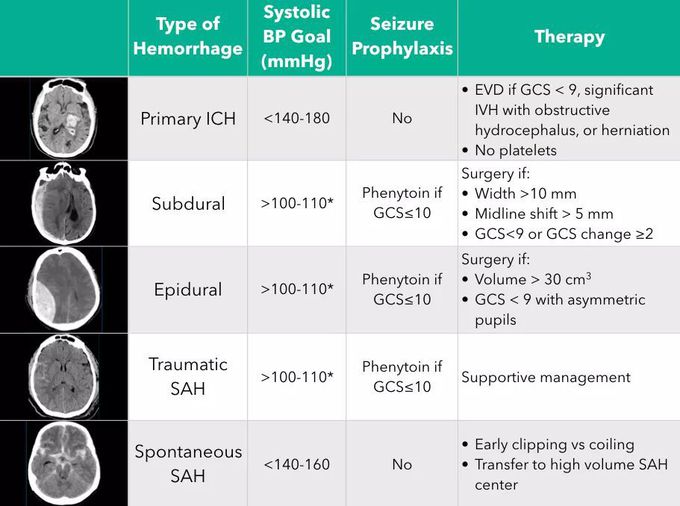
Other commentsSign in to post comments. You don't have an account? Sign up now!
over 5 years ago
In ICH we lower BP only 20 mmHg max if I'm wrong please correct me.
You have difference in brain injuries and non brain injuries a subdural hematoma and other like blood clots or brain anurysums can effect several different areas of sight smell sound taste etc........
Related posts
herniation secondary to raised ICPHyperekplexiaSymptoms of HyperekplexiaDandy Walker Malformation | Diagnosis symptoms and treatment2-Minute Neuroscience: Brain AneurysmsSeizures (Epilepsy) Nursing NCLEX: Tonic-Clonic, Generalized, Focal, SymptomsStroke: Causes, Risk Factors, Treatment, and Prevention | Mass General BrighamNeurofibromatosisAbsence seizuresSymptoms of absence seizures




